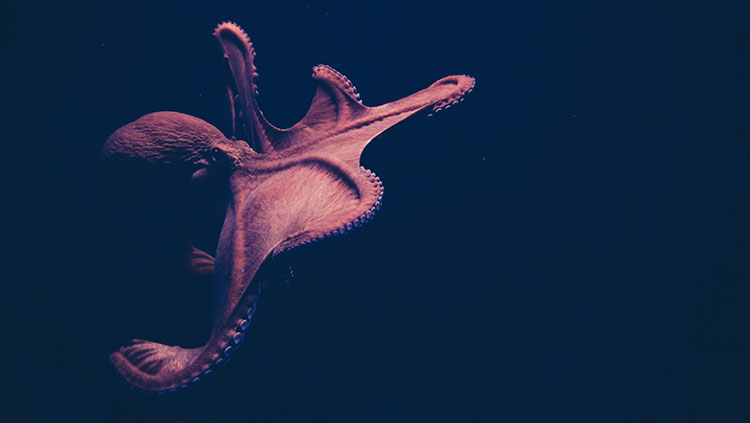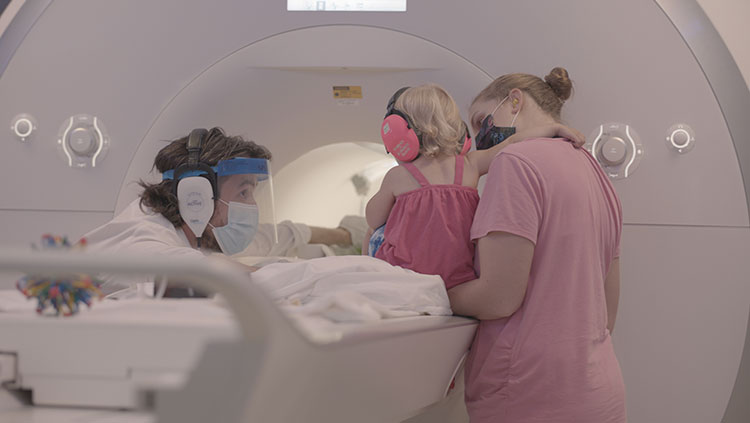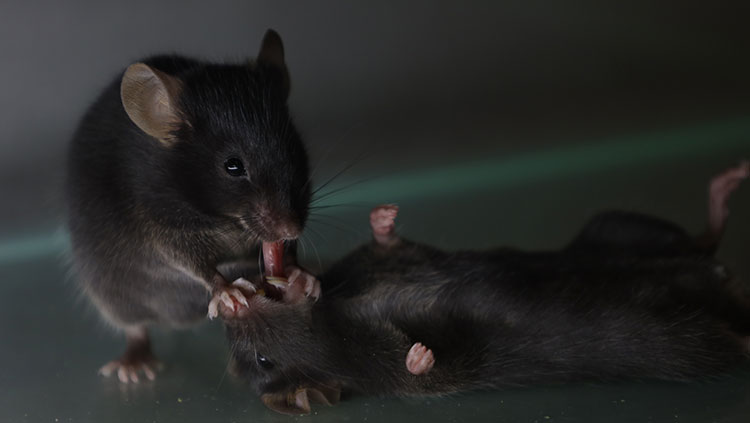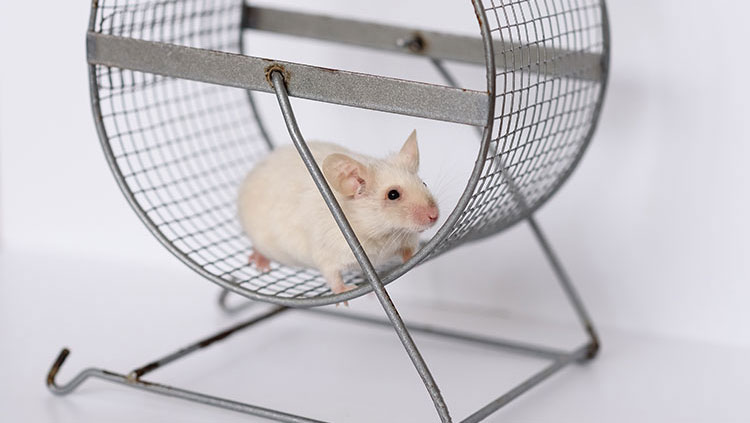ICYMI: These Ants Shrink and Regrow Their Brains
- Published7 May 2021
- Author Alexis Wnuk
- Source BrainFacts/SfN
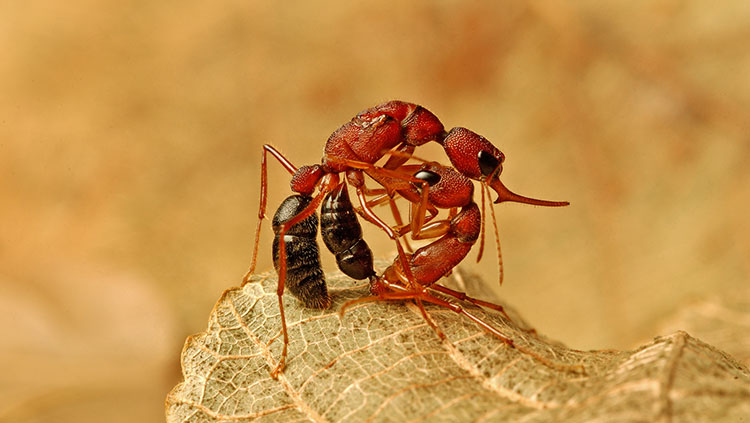
In a bid to become queen, female Indian jumping ants shrink their brains by about 20%, researchers reported April 14 in Proceedings of the Royal Society B. The change is part of a profound transformation to prepare their bodies for reproduction. The species is unique in the ant world: whereas most queens claim the title as a birthright, Indian jumping ants compete for the coveted position when the ruling queen dies. The females duke it out in combat until a few victors emerge. During this time, their ovaries swell and their brains shrink. The most notable shrinkage happens in the optical lobes, which process vision, and the central region responsible for more complex cognition — neither of which are all that necessary for a would-be queen, whose only job is to lay eggs. But what happens to the vanquished? To find out, the researchers isolated a few of the contenders and found their brains returned to their prefight size in a few weeks.
Related: How Pregnancy Changes the Brain
Read more: These Ants Shrink Their Brains for a Chance to Become Queen. The New York Times
More Top Stories
- Psilocybin may be just as effective as antidepressants in treating depression. The Guardian
- When problem-solving, our brains default to addition — even when subtraction makes more sense. Science News
- Rather than selecting for big brains, evolution may have favored smaller bodies. The Guardian
- An Alzheimer’s disease drug may improve cognition in Fragile X syndrome. NPR
- Drug overdose deaths have surged during the pandemic. The New York Times
- Your phone’s night mode isn’t helping you sleep better. USA Today
- Contrary to what was predicted, suicide rates haven’t changed much during the pandemic. The Atlantic
- Chronic sinus congestion may change brain activity. Gizmodo
- Our brains are better at recognizing screams of joy than screams of fear or distress. Science News
- Insufficient sleep during midlife increases the risk of dementia. CNN
CONTENT PROVIDED BY
BrainFacts/SfN
What to Read Next
Also In Neuroscience in the News
Trending
Popular articles on BrainFacts.org



